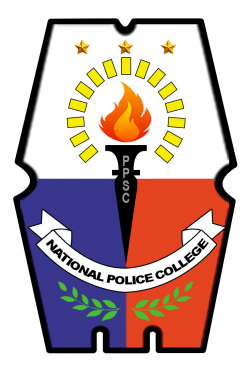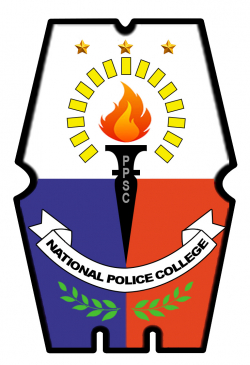PROCESSING OF EXPLOSIVES AND INCENDIARIES IN POST BLAST INVESTIGATION

Type
Thesis
Authors
PLTCOL CEJES, LOURDELIZA G ( PLTCOL STA MARIA, NELLSON C, PLTCOL SUMOBAY, VIVIAN C )
Category
PSOSEC
[ Browse Items ]
Publication Year
2021
Abstract
Processing of Explosives and Incendiaries has been one of the primary forensic services being catered by the PNP Crime Laboratory which is a collaboration of joint efforts of the EOD technical skills in reconstructing the alleged bomb or IED and investigative abilities of the IOC in establishing the perpetrator of the crime.
The series of bombing incidents in the Philippines from the Plaza Miranda Bombing to the Jolo, Sulu incident has been linked to presence of insurgency and terrorism in the country which has lead the law makers in repealing the Human Security Act and replacing it with the Anti-terrorism Law.
Guided with the Standard Operating Procedures in Processing the Crime Scene, Primer of Explosives and PNP Operating Procedures, the SOCO Personnel, IOC and EOD work hand in hand in processing the post blast site for collection preservation, transportation until it reaches the Chemist in the PNP Crime Laboratory who examines the debris, explosive ingredients soil samples and IED which in turn the results will be claimed by the investigators on case for filing of appropriate charges.
The researchers will assess the processing of explosives and incendiaries in post blast investigation in terms of gathering and safekeeping, transmittal of evidence to the crime laboratory, analysis of evidence and reporting of Laboratory Reports. The researchers will also identify the gaps identified in the study. The output of this research will serve as basis for an action plan for Processing of Explosives and Incendiaries in Post Blast Investigation.
This research is based on the PNP Master Plan SANDIGAN which is the PNP’s campaign on crime prevention, control and suppression in all forms and forces of criminality; specifically on the PNP Operational Procedures rule 34 which focuses on Bomb, Bomb Threat and Bomb Incident Emergency Response as well as rule 35 which are the procedures on determining and reporting of terrorism incidents.
This research combines the use of foreign and local literature on explosives, collection, handling, preservation, transportation, examination and report writing of cases related to explosives and incendiaries in post blasé investigation.
The research then combines the findings of the survey questionnaire and focus groups thru the use of statistical tool and treatment of empirical data to produce a more tangible result in assessing the relevancy and implementation of the standard operating procedures in the pre-evaluation, processing, collection, preservation, transport, examination and laboratory results on explosives and incendiaries related to post blast investigation.
The output of this research is reduced into an action plan which will be propose institutional and structural changes for enhancing the forensic capabilities for the PNP Crime Laboratory.
The series of bombing incidents in the Philippines from the Plaza Miranda Bombing to the Jolo, Sulu incident has been linked to presence of insurgency and terrorism in the country which has lead the law makers in repealing the Human Security Act and replacing it with the Anti-terrorism Law.
Guided with the Standard Operating Procedures in Processing the Crime Scene, Primer of Explosives and PNP Operating Procedures, the SOCO Personnel, IOC and EOD work hand in hand in processing the post blast site for collection preservation, transportation until it reaches the Chemist in the PNP Crime Laboratory who examines the debris, explosive ingredients soil samples and IED which in turn the results will be claimed by the investigators on case for filing of appropriate charges.
The researchers will assess the processing of explosives and incendiaries in post blast investigation in terms of gathering and safekeeping, transmittal of evidence to the crime laboratory, analysis of evidence and reporting of Laboratory Reports. The researchers will also identify the gaps identified in the study. The output of this research will serve as basis for an action plan for Processing of Explosives and Incendiaries in Post Blast Investigation.
This research is based on the PNP Master Plan SANDIGAN which is the PNP’s campaign on crime prevention, control and suppression in all forms and forces of criminality; specifically on the PNP Operational Procedures rule 34 which focuses on Bomb, Bomb Threat and Bomb Incident Emergency Response as well as rule 35 which are the procedures on determining and reporting of terrorism incidents.
This research combines the use of foreign and local literature on explosives, collection, handling, preservation, transportation, examination and report writing of cases related to explosives and incendiaries in post blasé investigation.
The research then combines the findings of the survey questionnaire and focus groups thru the use of statistical tool and treatment of empirical data to produce a more tangible result in assessing the relevancy and implementation of the standard operating procedures in the pre-evaluation, processing, collection, preservation, transport, examination and laboratory results on explosives and incendiaries related to post blast investigation.
The output of this research is reduced into an action plan which will be propose institutional and structural changes for enhancing the forensic capabilities for the PNP Crime Laboratory.
Number of Copies
1
| Library | Accession No | Call No | Copy No | Edition | Location | Availability |
|---|---|---|---|---|---|---|
| NPC Library | 676223 | 1 | Yes |




